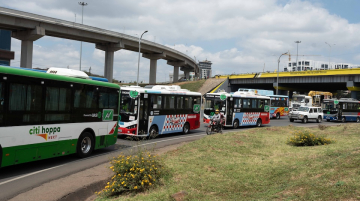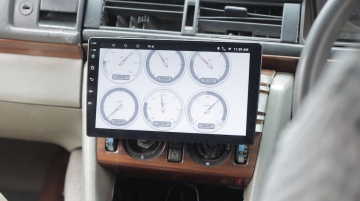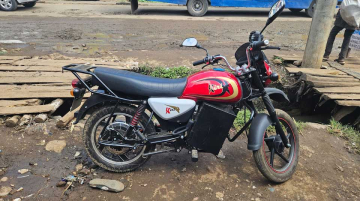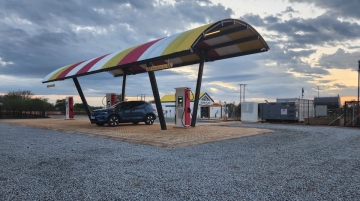
In a suburb about 50 kilometers outside of Nairobi along the busy Mombasa Road, the hum of engines and the occasional smell of exhaust fumes fleet through the air.
A tiny Chinese EV car, the Henrey, weaves its way through the heavy traffic to drop a customer at a building along the highway. That customer, me, taking a demo trip, seeking to understand this car that has entered the Kenyan market, promising to revolutionize the taxi sector by allowing drivers to save more than they could manage driving an internal combustion engine.
A taxi driver saving $25 daily in Kenya is a significant accomplishment. However, buying this car presents more hurdles than opportunities, like financing and the ever-challenging inflation in an economy like Kenya’s. While these cars are not for sale but for leasing, the end user doesn’t pay the import tax but rather the importer, who eventually makes it back with the daily lease cost.
The monthly cost at the daily lease rate for the Henrey is $750, meaning the seller pays back the car in less than 24 months, after which they start earning real profits.
At current market rates in Kenya, buying one of these cars would cost upwards of $15,000 or 2 million shillings.
$3 Charge for 200 Kilometers Range
Hindrances to EV adoption in Kenya are not the roads, charging infrastructure, or the availability of maintenance services but taxes, which are almost the same as the principal cost of a vehicle regardless of whether they are gas-powered internal combustion engines (ICE) or electric, new or secondhand.
Despite the financial hurdles for taxi drivers, Rideence, a Chinese-owned electric vehicle company, is entering the Kenyan market through public transport solutions like small EVs for taxis, vans, and buses for mass public movement of people.
The entry of the Henrey EV, which is sold in China as the Xiahou or the Mini Dragon, could be a lifesaver for many taxi drivers at a time when every day, ordinary Kenyans struggle with rising living costs, which affect their travel options, such as the use of public service vehicles, popularly known as matatus. Since Kenya imports its fuel, the prices are unpredictable, making planning travel a nightmare for many.

Rideence seeks to address this challenge by making EVs available in public transport, from small taxis to buses.
Joseph Macharia is the account manager for Rideence’s ride-hailing business. He says that taxi drivers are wrestling with rising fuel costs, endless repairs on their aging ICE vehicles, and the relentless pressure to make enough to cover their vehicle lease.
This is why they launched the Henrey, which drivers can lease at a fraction of their daily expenses.
“For just 2,400 shillings ($25) a day, a driver can lease this car,” says Macharia. “There are no fuel costs. No engine repairs. And you charge it for less than 400 shillings (about $3), and you’ll drive 200 kilometers on a single charge. Compare that to the 3,000 shillings you’d spend on petrol for the same distance.”
Another unique approach that Rideence has taken allows their drivers a breather.
“For one day a week, every shilling you earn is yours. Public holidays? All yours. Christmas week? Four days of pure profit,” Macharia adds.
This means drivers can make more than if they were leasing regular gas-powered taxis, whose consumption eats at their profits.
The Henrey has a spacious leather interior and eco and sport driving modes. Eco helps save the car battery’s energy, while the sport mode is for faster driving.

“Sport mode cuts your range but gives you speed,” Joseph explained. “But for city driving, Eco is king.”
Drivers start leasing a Henrey by giving Rideence a refundable $390 deposit, after which they pay $25 daily.
While this sounds like an innovative entry into Kenya’s cutthroat taxi sector, the car’s ability to help taxi drivers increase their profits will ultimately determine the vehicle’s success or failure.








